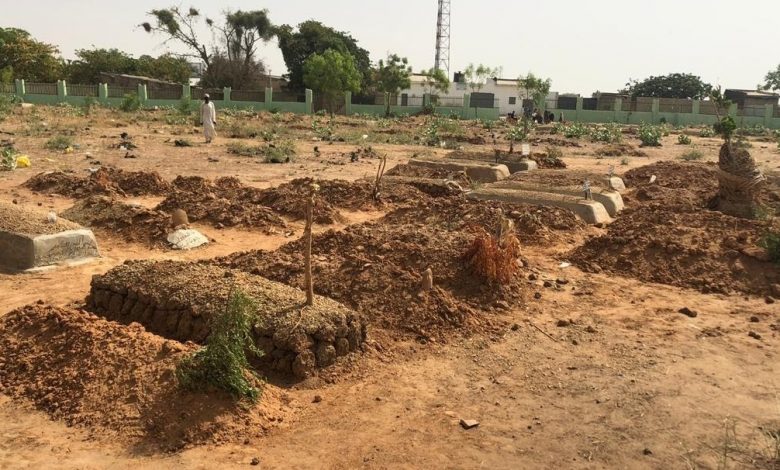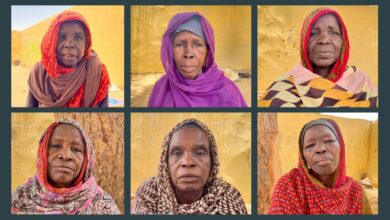“Verbal Autopsies” Continue As Kano Loses Its Very Best

Kano continues to lose its very best in “unusual deaths” as the State Government insists that the increasing death rate is not related to the dreadful COVID-19 pandemic.
Mallam Muhammad Garba, the state Commissioner for Information, earlier said in statementtgat: “The state government acknowledges recent deaths in Kano, but it is on top of the situation. We have begun investigation to unravel the remote causes of the deaths.
“The investigation into the cause of the deaths is still ongoing, but a preliminary report of the state Ministry of Health indicates that the deaths are not connected to the COVID-19 pandemic.
“Reports from the ministry have shown that most of the deaths were caused by complications arising from hypertension, diabetes, meningitis and acute malaria.”
As of 29 April, 2020, the state had 115 confirmed cases of COVID-19 with three deaths.
“Verbal Autopsies” Continue
Meanwhile, the State Government is conducting what it calls “verbal autopsies” to establish the causes of the deaths.
The “verbal autopsy” involves house-to-house investigation and documentation of the number and causes of deaths in the state.
Mallam Hamza is one of the Dala Local Government medical staff going around the houses in Bakin Ruwa Ward of the area to conduct the “verbal autopsies”.
In an interview with HumAngle, Hamza said, “we have so far found the causes of 29 deaths in Cediya and Ayagi”.
He added: “according to the families of the dead, most of them died of hypertension, malaria and typhoid.”
But people in the state have continued to criticise the “verbal autopsy” as an effective way to investigate the causes of the increase in the rate of mortality.
Many think families of the dead would not know what caused the deaths if they had no medical background.
Usman Oruma who witnessed how the “verbal autopsies” are conducted in Aikawa, said the information would be faulty.
“Many people think their names are recorded to be given government palliatives, they therefore give wrong data,” he said.
Kano Loses its Prominent Figures
Among the figures the state lost as the “unusual” deaths continue to spike include prominent academics, influential philanthropists, business tycoons, civil servants and clerics.
Prof. Aliyu Dikko (1953-2020) is among the academics who have lost their lives in recent times. He was the first professor of Human Physiology from Kano State and a former Deputy Vice-Chancellor and Acting Vice-Chancellor of Bayero University, Kano. He worked as Head of Department and later Dean of the Faculty of Medicine, Bayero University, Kano.
Prof. Balarabe Maikaba died on 26 April, 2020. According to sources, Maikaba died of fever but before then he was suffering from diabetes. He taught at the Department of Mass Communication, Bayero University, Kano. He left four widows and 16 children.
Prof. Ibrahim Ayagi was the founder and Chief Executive Officer of Hassan Gwarzo Schools. He was born in 1940 and died on 25 April, 2020.
He taught at Ahmadu Bello University and was appointed Commisioner for Education and Economic Development in 1975. He was the one who established two prominent science colleges in Kano – Science Colleges at Dawakin Tofa and Dawakin Kudu.
Other prominent figures the state lost recently include Sheikh Tijjani Tukur Yola, Dr. Ghali Kabir who was a lecturer at Kano University of Science and Technology, Wudil, Dr Musa Umar Gwarzo, Mallam Musa Tijjani, Alhaji Dahiru Rabi’u and Dr Sabo Kurawa.
The Situation in the Graveyards
HumAngle visited Dandolo, one of the largest cemeteries in Kano state, to check the situation as regards the increase in the number of burials in the cemetery.
Kabiru Nasidi Karkasara works as a gravedigger at the Dandolo Cemetery. He told HumAngle that the number of burials had continued to range between 35 and 40 per day as compared to the previous times when less than 20 bodies were buried per day.
“We noticed an increase in the rate of deaths from the day a total lockdown was imposed, and most of the people dying are elderly ones. The number of burials are also spiking everyday,” he said.
HumAngle asked Karkasara whether he or any other workers at the cemetery were contacted by the government to investigate the increase in the number of burials and he responded: “Yes.
“They do come. Journalists also come. But they don’t do anything beyond that.”
Karkasara later appealed to the government to provide gravediggers and other cemetery workers Personal Protective Equipment to shield themselves from possible COVID-19 infections.
“For me, I only dig the graves and allow others to touch or bury the corpses. I don’t touch them. This is why we appeal to the government to provide us with protective wears,” he said.
Community-Based Survey
A community-based survey report released by Yusuf Yau Gambo of the Department of Mathematics, Yusuf Maitama Sule University, Kano, concluded that the “increase in mortality seems to be true” and “all local government areas within Kano metropolis were affected by this spike in devastating deaths in the last two weeks”.
The report shows that the “increased deaths in Kano State happened among the elderly people, mostly above 60 years of age across both genders. However, the male gender accounted for 91 per cent compared to only 9 per cent females.”
Support Our Journalism
There are millions of ordinary people affected by conflict in Africa whose stories are missing in the mainstream media. HumAngle is determined to tell those challenging and under-reported stories, hoping that the people impacted by these conflicts will find the safety and security they deserve.
To ensure that we continue to provide public service coverage, we have a small favour to ask you. We want you to be part of our journalistic endeavour by contributing a token to us.
Your donation will further promote a robust, free, and independent media.
Donate Here




